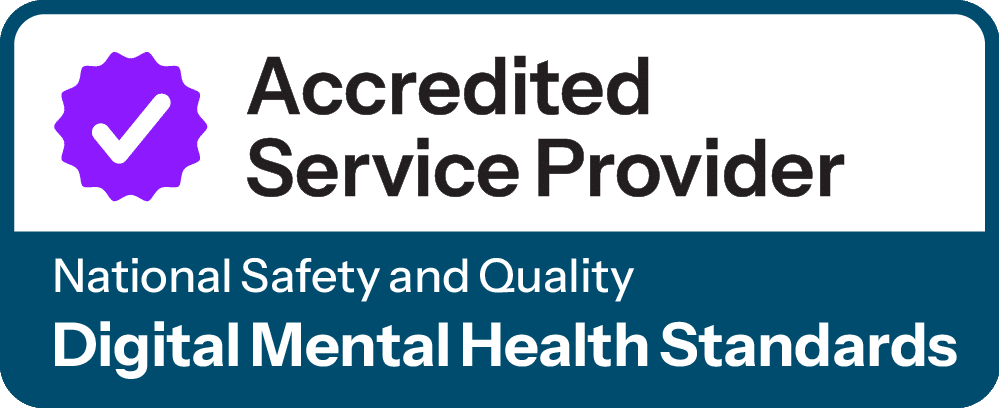
Let’s make some changes – starting a conversation about alcohol
‘I was so ashamed - I had a secret life going on. I was the perfect secretive drinker. No-one seemed to approach me, and I wish they had. I would have appreciated that.’
Leonie
Talking to a family member, friend, or colleague about their relationship with alcohol might feel overwhelming or intimidating. It’s understandable that you would be anxious about offending someone, or inflaming a sensitive situation. But if you feel it’s time to start a discussion about the drinking habits of someone you care about, you’re taking a helpful step in supporting them through change.
According to the Alcohol and Drug Foundation one in eight Australians has been drinking every day since the pandemic began last year. While the last few years have tested us all, understanding the effects of alcohol and associated risks of constantly drinking, as well as assessing reasons for drinking, is a vital check-in for us all. Talking to someone about their drinking and its risks to their health, and relationships, could bring them a step closer to their decision to ease up or quit altogether.
Getting ready for the conversation
If you’re impacted by someone’s drinking, or worry about their habits, you might want to read up on how to best assess if they would be open to change, and how to prepare to approach them.
Helping family & friends
General tips if you are concerned about someone's drinking
Read more
This kind of talk takes courage.
It might be difficult for you to express how you're feeling or your concerns when you're starting the conversation. Before you start it's helpful to pick your moment and the location.
Our Hello Sunday Morning health coaches advise that it’s important to offer a non-judgemental listening ear to enable them to talk about their experiences, how they’re feeling and if they feel ready for change. This kind of talk is best when they feel calm, safe and are not under the influence of alcohol.
Leonie’s desire to change her relationship with alcohol became stronger when she connected with a friend who provided her with a safe and respectful space to talk through her experiences.
‘She held that space for me and gave me the chance to tell my story. I wouldn’t be where I am today without her.’
Listening, and helping your friend or family member to recognise risky habits in their relationship with alcohol can help loved ones make powerful progress. But it often starts with reaching out and talking first.

Recognising and breaking toxic cycle
One interesting thing to consider when looking at human behaviour is the idea of the vicious or virtuous cycle. Certain things in our life roll over onto others, and before long we find ourselves in either a positive or negative feedback loop.
How can you recognise this cycle?
Before you have the talk:
- Prepare for the chat. Educate yourself – arm yourself with facts about possible risks and triggers. Knowing key alcohol facts and the short-term and long-term risks might be useful in presenting your concerns. Review and reflect on any observations or experiences you have encountered. Evaluate your own behaviours and attitudes about alcohol. Be aware of the Stages In Change which might help you to understand where they are at, and assist in setting expectations about the talk.
- Check-in on their circumstance. Assess and understand their situation. There are many reasons why a person may have started to drink excessively, such as dealing with sadness, stress or mental illness impacts.
- Make it a safe and open talk about alcohol. Make it a non-judgemental conversation and ask open-ended questions. Think about your body language and tone of voice. Even if you do not understand your friend’s point of view, or reasons for drinking, try to be understanding. Take emotion out of your conversation and avoid being confrontational. Be ready to listen and be prepared to be patient.
- Discuss perceptions of alcohol. Encourage your friend or family member to talk about their thoughts on alcohol and help them to process their own relationship with alcohol.
- Refer to professional help. It’s important that while we love and care for them, we aren’t necessarily equipped to help them.
- Ask how you can support your friend / family member’s alcohol consumption. Offer to be a trusted person they can check-in or socialise with while they make changes.
There’s no right way to start the conversation, but make sure you listen to your friend, be thoughtful and genuine. These talking tips may help:
‘I’ve noticed you’ve been feeling tired lately, are you OK?’
‘I know you've gone through a difficult time lately; I just want to see how you are holding up and if you have ways to cope?’
‘I want to talk about something that's been worrying me recently, is there a good time we can chat?’
It takes strength to have these conversations, but there are many positive flow-on effects and you may build a stronger relationship with someone special.
Calling on professional support
Our Hello Sunday Morning health coaches remind us that abstaining or moderating takes commitment and support from professionals, as well as loved ones.
You may remember Sarah’s story. Sarah wanted to quit drinking to rebuild a relationship with herself. As well as seeking support from friends, she turned to the Daybreak app to share with others facing similar challenges.

Alcohol and Shame
‘It is a good idea to break down your shame by discussing it with a professional, such as a counsellor or psychologist if you feel comfortable doing so. This will assist you to better understand your relationship with alcohol, its triggers, and to identify ways to address them.’
If you’re looking for focussed help to chat with someone about their risky relationship with alcohol, you may find the following support helpful:
Small changes start with conversations that show you care.
Many people are initially not interested in changing the way they drink. It takes time, adjustment, and support.










I liked this article and the link to the stages of change. A couple of suggestions though. 1. I didn’t like the statement you suggested to open a conversation about alcohol “I know you’ve been feeling…” wouldn’t it be better to say ” you seem a bit tired lately” – also its worth making it clear with stages of change that people can cycle back through at any point. Finally I was just wondering if the questions people from overseas were asking about accessing daybreak had been answered? Can they access it?
Hi Kate, Thank you for sharing your thoughts with us!
As for your suggestions: 1. ‘you seems a bit tired lately..’ is a good conversation starter. Great suggestion!
2. We also mention the stages in change with link to understanding this further. Thanks for the reminder!
More info about our Daybreak:
Daybreak is free for all Australians and is funded by the Australian Government, Department of Health.
International members can also use Daybreak at $12.99 AUD per month or for $119.99 AUD for the year.
Find out more:
https://apps.apple.com/au/app/daybreak-alcohol-support/id1107514492
https://hellosundaymorning.org/daybreak/
All the best, Kate!
From HSM team
This is a much needed article as there is very little online to support people that need to approach and talk to a family member or friend that has an alcohol problem. I have had to approach a parent – and this was the hardest conversation I have ever had to have in my life and it is not easy.
It would be great if this article and the advice could go further – how do you judge when the drinking has reached a point that is too much? When should you step in? What if the drinking is done in secret and you have found out through monitoring the situation? What if the person you are approaching does not want to talk about it and what if the person thinks that there is no problem and won’t seek help. Thank you.
Hi Louis, Thank you for your valuable feedback. Approaching someone about their drinking is not simple, as you correctly highlighted. There is no one answer that fits all. If you are currently concern about your love one’s relationship with alcohol, speaking to a counsellor or a psychologist might be helpful as they could help understand your situation in more specific. If you are in Australia, we find Relationship Australia services to be helpful. https://relationships.org.au/
Wishing you the best, Louis!
Hello Sunday Morning Team